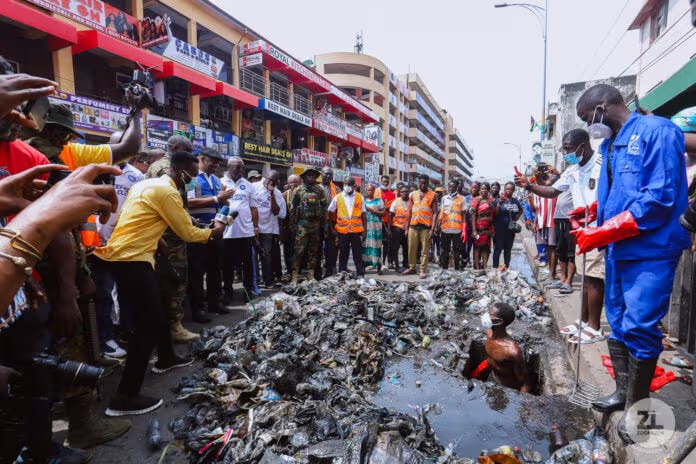The Environmental Protection Agency (EPA) is making efforts to partner with cities to ensure Ghana’s environment, particularly the rivers, are not inundated with waste.
The Chief Executive Officer of the Agency, Prof. Nana Ama Browne Klutse, speaking as a guest of honour in a recorded video played at Media General’s Waste Summit 2025, said, “The EPA is in the process of operationalising the extended producer responsibility with rising targets and partnering with cities.”
Speaking on the theme; Filtering the Future: Plastics, Waste and Wealth, she admonished that waste in the country be managed to become beneficial to citizens, rather than a burden.
“Let’s filter the future so plastics stay in the economy, not in our rivers and waste becomes wealth shared fairly.” According to her, there are three things she believes could be done to make plastic waste a wealth creation avenue rather than an environmental pollutant.
“Plastic waste can become wealth if we do three things; design products to be recycled, deliver reliable collection and local recycling workers with dignity, safe air included. EPA is enforcing extended producer responsibility partnering with city and publishing public score cards. Let’s keep plastics in the economy, and not in our rivers,” she reiterated.
Plastic waste has become a significant issue in Ghana due to rapid urbanisation, population growth, and inadequate waste management infrastructure. The widespread use of single-use plastics, particularly plastic bags and sachets, has led to massive amounts of waste.
Many Ghanaians dispose of plastic waste improperly, leading to choked drains, polluted waterways, and unsightly landscapes. The country’s informal economy also contributes to the problem, as many rely on plastic waste for livelihoods, but lack proper collection and recycling systems.
Ghana’s beaches and coastal areas are also affected, harming marine life and the tourism industry. The Environmental Protection Agency (EPA) estimates that Ghana generates over 1.2 million tonnes of plastic waste annually, with only a fraction being properly managed.
This has necessitated the need for the country to re-examine how plastic waste is disposed of in the country, to ensure the environment is not excessively polluted.






